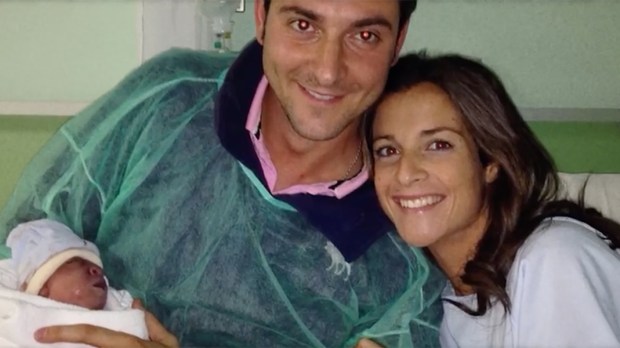At age 26 and newly married, Emma Serrano de Pablo became pregnant with her first child, Pepito. His heartbeat was strong and his parents were immensely excited about starting their new family.
After 16 weeks of pregnancy, however, the gynecologist diagnosed Pepito with a cranioencephalic anomaly, called anencephaly or acrania, consisting of the total or partial absence of skull, scalp, and brain mass: a diagnosis incompatible with life outside the womb.
Faced with this situation, doctors encouraged the young couple to have an abortion, so that they could avoid the anguish of knowing throughout the pregnancy and birth that their child would die.
Today, this is a standard approach that places the choice in the hands of those who believe they have the right to decide whether or not their own child should continue to live. “As a mother, how am I going to end my child’s life?” Emma immediately asked herself.
Both she and her husband, Javier, didn’t hesitate. Their son’s life came above all else, and they would respect the natural course of the pregnancy, despite the immense sorrow they felt.
In an interview with Folksixty, Emma explains with the firmness of one who lives with conviction: “I believe that life is above all else … life from conception, because that’s how I lived it.”
Pepito’s life already existed; his heart was already beating. He was their son. They wanted to share his situation immediately with their families.
Pepito’s revolution
Throughout the pregnancy they received phone calls and messages of support and encouragement from family, friends, and even strangers who had joined the vast prayer chains interceding for Pepito and his parents.
She says that their faith, which until then had been “theoretical,” grew, and they began to live it out more truly. During all that time, they gave testimony with their lives and actively defended the life of the unborn. Emma felt that, thanks to all this support, and thanks to the prayers of others, the burden of her sorrow was more bearable, as if in some way it were shared among all those who were present.
A pregnancy of uncertainties
No doctor could assure them that the pregnancy would go to term, nor could anyone tell them how long their child would live in case of delivery, and whether he would be born alive or dead. They mourned all throughout the time they were preparing to receive their son and, at the same time, wanted to chance to say goodbye to him.
And yet, Emma confesses that each ultrasound scan was a window of hope, “always going with the hope of a miracle, that the diagnosis would have disappeared.”
9 hours that feel like a lifetime
Emma and her husband say that their family life didn’t last only the nine hours that they had their son in their arms; during the nine preceding months, they enjoyed their parenthood, remaining happy and smiling despite suffering from the knowledge that their son would not live long. Those nine hours, although it sounds like a short period of time, were useful for them to get to know their son, to talk to him, to kiss him … and even for some relatives, to enjoy meeting Pepito too.
“The moment they laid him on me and he took my finger in his hand was worth all the pain and all the tears. It was a satisfaction that I wouldn’t trade for anything in the world,” she says. “Nine hours is nothing, but it was an entire life.”
She’s still amazed at the resilience of human life when she tells how, during those hours when they held their son in their arms, he held on to life with every breath.
Peace filled them when Pepito died. They had given him all they had. They had accompanied him in every second of his short life. “We did—as any parent would do—everything in our power to fight for him.”

Read more:
When a baby’s diagnosis is grim, there is a path of hope
Read more:
NFL Player and Wife Choose Life for Their Unborn Baby Diagnosed with Anencephaly

